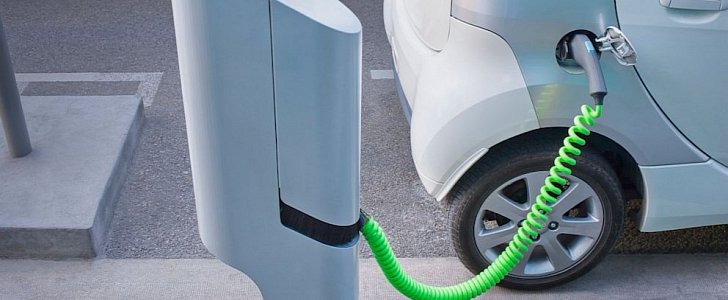As part of the Road to Zero government plan, which seeks the reduction to zero of new car emissions by 2040, a new initiative will aim to boost the existing infrastructure to keep up with increased demand of EVs.
Transport secretary Chris Grayling has proposed a new project that will see new buildings, such as homes and office buildings, equipped with electric car charging points. At the same time, the initiative will include charging points on new light installations in key areas.
The former will allow drivers of electric vehicles to charge their cars at night, while the latter is designed with drivers with access to street parking only in mind. Both are meant to boost the existing infrastructure and keep up with increased demand for electric vehicles.
Grayling estimates that the plan would require a £400 million investment, which should be a partnership between government and private companies. He calls it “the biggest overhaul in road transport technology since the development of the Benz patent motorcar 130 years ago,” according to the BBC.
“The prize is not just a cleaner and healthier environment but a UK economy fit for the future and the chance to win a substantial slice of a market estimated to be worth up to £7.6 trillion by 2050,” Grayling adds.
At the same time, Grayling stresses the need for manufacturers to address the issue of EVs’ limited range on the road. Only by solving this issue and with the Road to Zero policy carried out, can the UK expect to meet the 2040 deadline for zero emissions on new cars.
Grayling’s comments come in direct contradiction with transport minister Richard Harrington’s recent admission that diesel and gasoline cars could still run on UK roads after a proposed 2040 ban. The way Harrington sees it, this would be possible if “a kind of internal combustion engine that has zero-emission tailpipes” is developed by that time.
The former will allow drivers of electric vehicles to charge their cars at night, while the latter is designed with drivers with access to street parking only in mind. Both are meant to boost the existing infrastructure and keep up with increased demand for electric vehicles.
Grayling estimates that the plan would require a £400 million investment, which should be a partnership between government and private companies. He calls it “the biggest overhaul in road transport technology since the development of the Benz patent motorcar 130 years ago,” according to the BBC.
“The prize is not just a cleaner and healthier environment but a UK economy fit for the future and the chance to win a substantial slice of a market estimated to be worth up to £7.6 trillion by 2050,” Grayling adds.
At the same time, Grayling stresses the need for manufacturers to address the issue of EVs’ limited range on the road. Only by solving this issue and with the Road to Zero policy carried out, can the UK expect to meet the 2040 deadline for zero emissions on new cars.
Grayling’s comments come in direct contradiction with transport minister Richard Harrington’s recent admission that diesel and gasoline cars could still run on UK roads after a proposed 2040 ban. The way Harrington sees it, this would be possible if “a kind of internal combustion engine that has zero-emission tailpipes” is developed by that time.













